2015.12.05 20:14
"Are we human?" Curators Beatriz Colomina and Mark Wigley announce concept for 2016 Istanbul Design Biennial
artificial : made or produced by human beings rather than occurring naturally, typically as a copy of something natural
There are also things that human beings make naturally, like bodily fluids, digestive waste, skin tissue, offspring, etc., and perhaps even thoughts, memories, imagination can be considered natural human production.
Cities don't occur naturally.
2015.12.05 23:19
"Are we human?" Curators Beatriz Colomina and Mark Wigley announce concept for 2016 Istanbul Design Biennial
Or aliens could be looking down at what you've been writing and say, "And I thought we were stupid." Opening it up to fiction means anything can happen.
2015.12.06 11:50
"Are we human?" Curators Beatriz Colomina and Mark Wigley announce concept for 2016 Istanbul Design Biennial
...you're continually making things up, so why would anyone discuss anything with you? And it's all illogical, assertions from all over the place and confirmations coming from (a very selective) fiction. There's no resolution in that set-up because anything and everything is no different than anything and everything else.
2015.12.06 21:42
"Are we human?" Curators Beatriz Colomina and Mark Wigley announce concept for 2016 Istanbul Design Biennial
I didn't answer your questions because in your line of thinking a plastic bottle is not only natural but it may also be the driving force behind the assimilating growth of the city of Anchorage Alaska which in turn is actually the nature of all evil within a forthcoming alien civilization that will live in a parallel-time galaxy next to ours, and, considering that on the scale of galaxies parallel lines actually do come to meet at some point, these two galaxies will crash, backwards yes but crash nonetheless, in space-time, relatively speaking, of course.
I've just suddenly become so enlightened. Thanks a gazillion!
2015.12.07 18:06
Architecture in the age of photoshop
...you've gone from...
"Consider the many buildings that no longer exist, or never existed, but continue to influence architects today."
to
"Its relevant because Architecture has a long history of embracing falsehoods, fantasies and misleading imagery."
to
"I can't say if the history of architectural fudging excuses this particular act of fudging."
and I'm not sure that all these represent the same thing. The topic of this thread is "misleading imagery" and "fudging," but doesn't concern "buildings that no longer exist, or never existed" nor "fantasies." So the context here is "misleading imagery" and "fudging."
Is there actually a long history of architecture embracing falsehoods?
| |
2015.12.07 18:45
Architecture in the age of photoshop
I suppose that's a rhetorical question, implying that a high percentage of architectural photography is basically "misleading imagery." That seems fair enough, thus, the "long history of architecture embracing falsehoods" is parallel to the history of architectural photography itself?
Now, thinking of drawings, particularly Beaux Arts reconstructions of ancient architecture, you could say they are misleading, but that's due to there not being enough remaining evidence to know what the ancient buildings exactly looked like. They were, however, never meant to deceive, but, to those viewers that do not know the full story of the reconstructive process, the drawings might certainly put a false idea into the uninitiated viewer's head.
I guess the issue here revolves around the intention of those who submit 'fudged' images.
  
| |
2015.12.09 10:20
Architecture in the age of photoshop
...none of the images you just posted are intended to represent a reality as it actually exists; they depict imaginative, potential, virtual realities.
The image that this thread is about...

...is a false depiction of a reality, and is unsuitable because it was submitted to an award competition that awards realities; the award is not for false depictions of a reality nor for any virtual realities.
2015.12.09 13:24
Architecture in the age of photoshop
I, for one, am not na´ve about "expect a building to exist in reality as it is represented in press photos." In fact, some years ago, I wrote that photography was my least favorite form of architectural representation for just that reason.
2004.02.18 11:42:
Perhaps I'm a minority or even unique in this thinking, but, of all the forms of architectural representation, architectural photography appeals to me the least. Foremost, for me, are architectural drawings (plans, sections, elevations, axonometrics, even construction documents), then models, then buildings themselves, then perspectives, then photography.
And of photography, it is the 'perfect shots' that I like the least. I prefer what the eyes really do see.
2004.02.18 14:28:
I prefer what the eye really does see as opposed to photography where what is 'unsightly' is omitted.
2015.12.09 18:42
Architecture in the age of photoshop
...there is great fault in your second paragraph. If the award in question was for a completed building (as opposed to a building design project), then the award is for the building's design and execution, and not at all for "what the building could be." I too do not know the particulars of this award, but I assume that the submitted buildings were not judged on photographic representations alone, meaning that plans, elevations, etc. were also submitted. Again, all these materials/representations are used to judge the building's design and execution.
Perhaps the "far more honest to what we want the profession to be" is, if 'doctored' photographs are submitted, then the undoctored version of the same photograph must be submitted as well.
On the notion of a building visit being the most proper way to judge a building, while for sure optimal it could also be very inconvenient, especially for a local AIA judging the work of a local firm but the work itself is not local at all.
| |
2015.12.16 18:49
16 December
2015.02.02 13:04
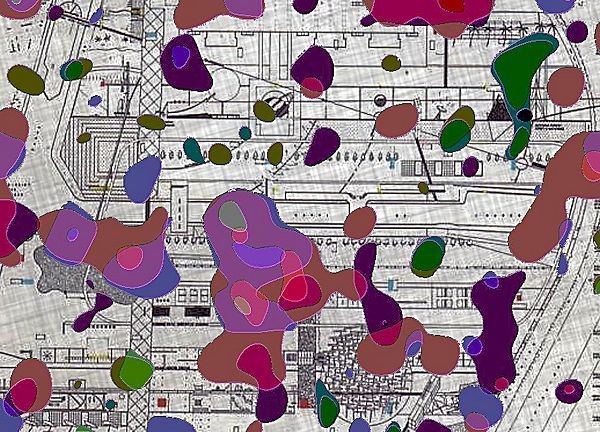 Proposed poster design for the Metabolization of History lecture series at Germantown Avenue University of Architecture.
Proposed poster design for the Metabolization of History lecture series at Germantown Avenue University of Architecture.
2015.03.02 18:30
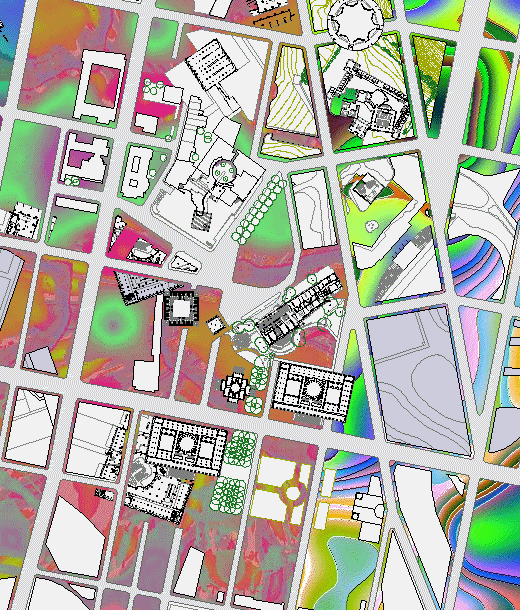
2015.03.17 16:27
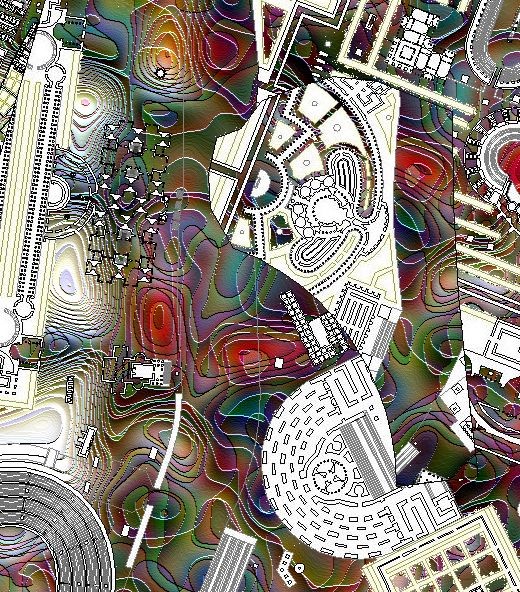
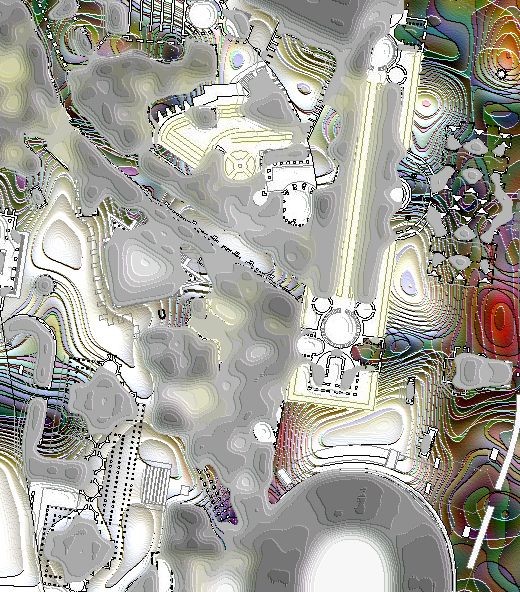
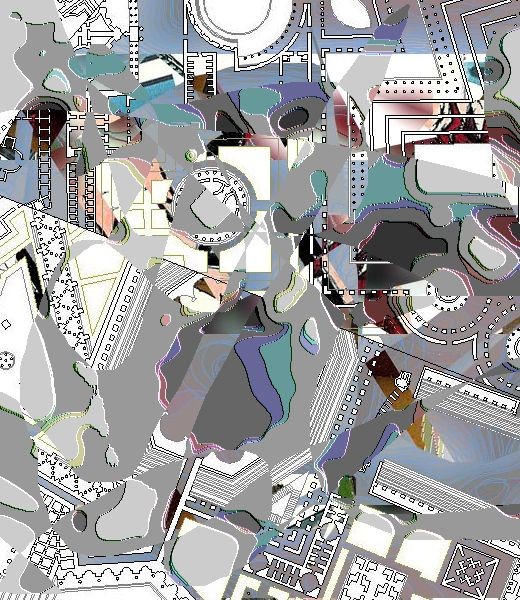
It didn't take very long for those ideas to spread.
2015.12.16

Clive Wilkenson Endless Workplace London
|